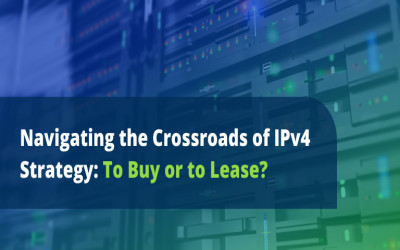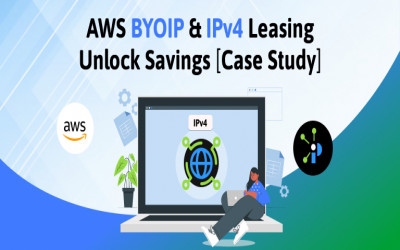How Private IP Address can Benefit Businesses?
-
Posted at 2020-10-12 07:27:23

Although you may not pay much attention to the IP address you pick for your business, you should know your choices will affect you in the future. As privacy issues and data breaches are becoming common pain points for companies, making the right digital security decisions is essential. Learn about private IP addresses and how it can help your business, both today and in the future.
What is an IP address?
Before you learn about private IP addresses, you should know about IP addresses. It refers to a combination of unique numbers allocated to every device connected to the internet. You can think of it as a physical mail address. Devices use IP addresses in the digital world to send and receive data.
Static and dynamic are two types of IP addresses. In the former, the allocated unique numbers are constant. Servers use static IP addresses, as devices access them regularly. On the other hand, dynamic IP addresses are random unique numbers assigned to a device.
What is a private IP address?
The above types of IP addresses are public, which means that any device can discover them and send data. However, there is also a private or local IP address, which doesn’t provide access to everyone.
Only devices on this network are discoverable to one another. One of the factors which differentiate private IP addresses from their public counterparts is the set of numbers. In the former, these digits don’t have to be unique as computers outside the network can’t find devices within the grid.
Private IP Network for Business
As a business owner, you want to know whether you should invest in a private IP network. After all, when it comes to security and privacy, you don’t want to take any risk. The best way to assess if this is the right decision for your business is to learn about the pros and cons of this network.
Advantages and Disadvantages of Private IPs
Advantages-
Enhanced security:
While the internet gives your business the ability to connect with a large audience, it comes at significant risk to your security. The internet is full of malicious users and applications, on the lookout for loopholes and vulnerabilities to exploit.
Any mistake or lack of focus from your end (or your employees) can leave your systems vulnerable to attacks from cybercriminals. If your business is responsible for handling sensitive customer data, any breach can hurt your company’s brand image and finances.
The risk of standing to lose hundreds, if not millions of dollars, is a significant risk no organization wants to take. As private IP addresses don’t share a connection with the internet, you won’t have to deal with these issues.
Increased privacy and protection:
Privacy is becoming a significant concern among internet users, as the awareness of how companies are misusing data is on the rise. For any business that handles sensitive customer data, letting people know you care about their privacy is paramount to earning their trust.
Companies go for private IP addresses because of the privacy it provides to the business. Due to the isolation of this network from other public devices, no external data can enter or leave the grid. Devices on the private network (belonging to your company) are the only ones who can interact with one another. As a result, it is the ideal setup when you have to handle large volumes of data.
Disadvantages-
Isolation:
Although the isolation is excellent from a security and safety standpoint, it comes at a cost. The inability to communicate with external devices means that suppliers, vendors, and clients won’t be able to use this network. You won’t be able to send or receive any data from these third-parties.
Higher maintenance costs:
You should know the configuration for private IP addresses isn’t standard. Also, for the network interface, there are additional setups you need to follow. Although the short-term costs may not be applicable for the majority of the applications, it can go up in the future. Also, keep in mind that if you want to communicate with third parties, you will have to maintain an open network simultaneously. Running these two grids together can increase costs.
At the end of the day, the benefits of private IP addresses outweigh the disadvantages of this network. If you want to make sure your business data is away from the hands of cybercriminals, getting a private IP address is always the right decision!


.png)
